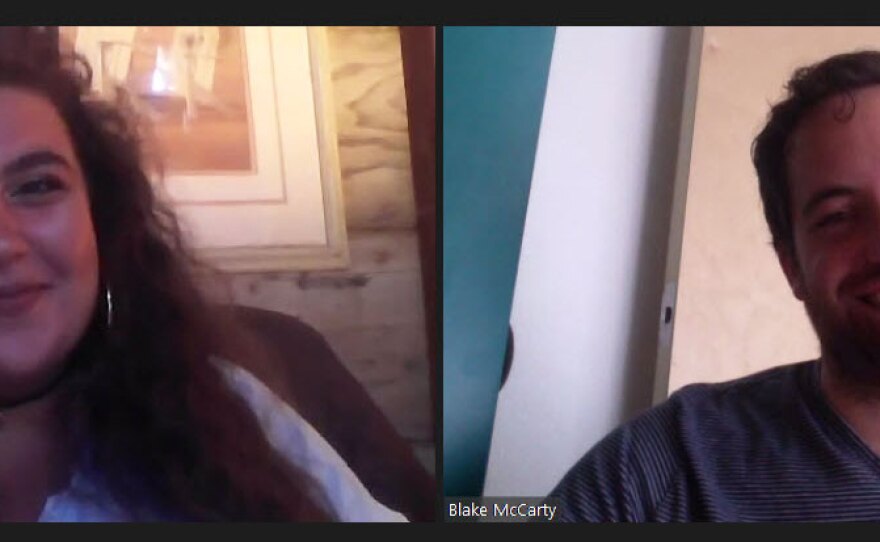Blindspot Collective, a San Diego-based theater group, has made a name for themselves in recent years with inclusive, barrier-busting, site-specific works, including being featured in the La Jolla Playhouse's Without Walls Festival.
This summer, they've launched "Refractions," which is a project that creates "human anthems," original songs written to honor lives lost during the pandemic.
While the pandemic has sidelined their operations in many ways, artistic director Blake McCarty said it has also created a sort of intersection of the values the company strives for.
"It challenges performing artists to really re-imagine what theater looks like," said McCarty, and Blindspot had already been interested in that conversation.
They've also long been interested in telling true, first-person, documentary-style stories. During the pandemic, when families affected by losses or sickness become statistics, Blindspot wanted to put those skills to work and honor victims by telling their stories. Verbatim theater, or documentary theater, is a specific form of nonfiction drama and playwriting that involves conducting interviews and transforming these interviews into script.
"Every piece of dialogue is something that is real and authentic from an interview source, so every character is based specifically on a real person and their true and real experience," McCarty said. He noted that verbatim theater generally tries to provoke conversation and social change, and that Tectonic Theatre's "The Laramie Project," the true story of Matthew Shepard, is a famous example of the genre.
Pulling from stories and interviews helps humanize and memorialize something bigger than just one person.
"Documentaries are not truth; they are still someone's perspective," said McCarty. "It's the ability to actually embrace someone's reality without making that reality monolithic in any way.”
Shellina Hefner, one of the artists leading the project, said storytelling is critical while communities are struggling with grief, but it's a role that she and many other performers are missing right now, with stages shuttered.
"For me, our job is to create empathy and to tell stories," Hefner said. "In all of these numbers that we're flooded with on television, we're losing the individual in this moment. Yeah, we see like, 300 new cases yesterday and we think, 'Oh that's a lot,' but I think that we're losing who these people are. Every single one of them has a story."

The group decided to pair grieving families with songwriters and performers to produce original music, with lyrics taken directly from the interviews and conversations with loved ones.
Hefner said that they first gather stories from families using one-on-one interviews. It's a way to get to know a person beyond the statistics: the things they loved, their catchphrases, and what the friends and family remember about them. They also ask what kind of music the person liked, and the types of music the family listens to together.
Blindspot then matches the family with artists from their list of composers, and the songwriters craft lyrics and work with performers who record the song as a video. The family can keep the song private, or may allow Blindspot to share the works with the public.
In the absence of public funerals, McCarty said that this process parallels the human need to eulogize their loved ones. When these songs are shared with the public, they put a face — and a story — to the human toll of the pandemic.
The first song Blindspot produced honored the memory of Juliet Davis. Her son, Tavi Tory McNeil, told Davis' story to songwriters Bryan Barbarin and Kendrick Dial, who wrote "Momma's Gonna Work it Out." Local rap and R&B group Kendrick Dial & The Routine performed the piece, with vocals by Dial and Barbarin.
"Somehow, however the universe works, it really came together. It was exactly what it needed to be — for me. And all I can say from the bottom of my heart is thank you," said McNeil, adding that his mother raised him with music. "My mom loved music."
Blindspot Collective is currently at work on several other songs, and they are looking for more families to participate in the program. Families can fill out this questionnaire if they're interested.








